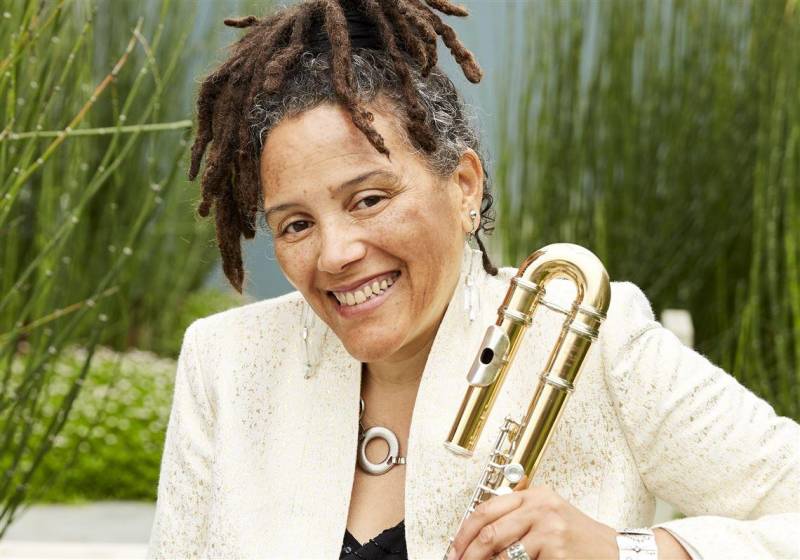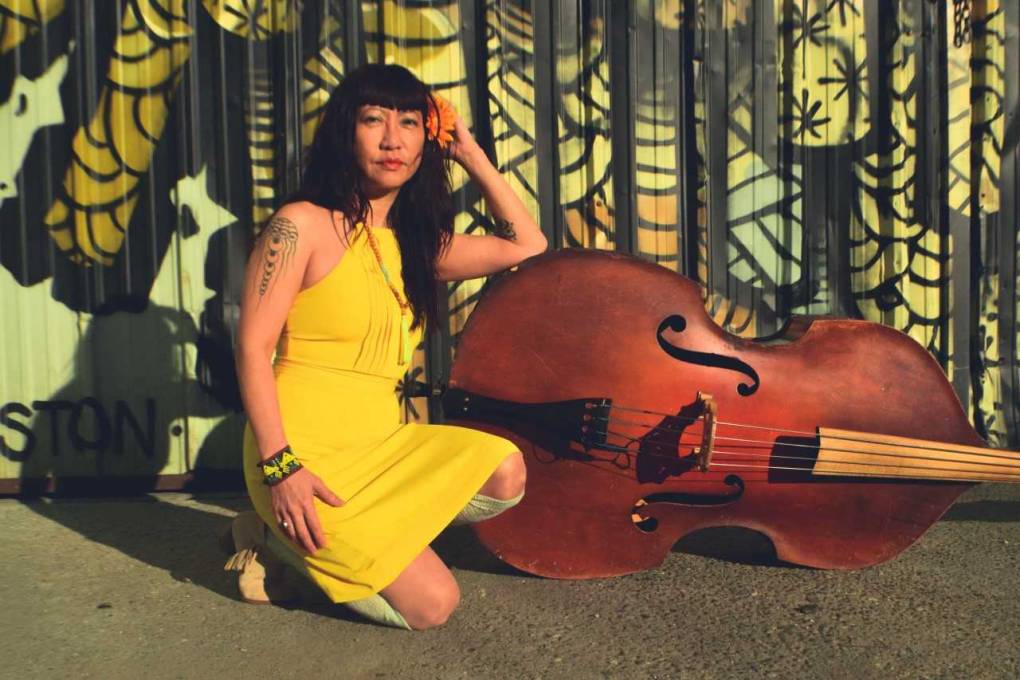In her music, Nicole Mitchell doesn’t just envision alternate worlds where Black creativity and humanity can thrive. The virtuoso flutist has become a major force in jazz by presenting and recording utopian communions where musicians and poets (and sometimes dancers and visual artists) improvise and explore together.
Though she grew up mostly in Anaheim and is now the chair of jazz studies at the University of Pittsburgh (after a seven-year stint as a professor at UC Irvine), Mitchell is indelibly linked to Chicago, where she came of age as a composer and bandleader. The first female president of the Association for the Advancement of Creative Musicians, she’s drawn on the polymorphous collective founded in the mid 1960s for a series of ambitious, often science-fiction inspired projects with her steadily evolving Black Earth Ensemble.
“That’s one of the things that’s so exciting about the AACM, the way it encapsulated this idea of self-determination, expanding Black identity,” says Mitchell, 54, who presents her first concert (in person and online) as Mills College’s 2021-22 Jean Macduff Vaux Composer-in-Residence on Saturday, Feb. 5, at Littlefield Concert Hall.
Building on an expansive aesthetic summed up by the AACM-generated Art Ensemble of Chicago’s motto “great black music: ancient to the future,” Mitchell embraced a musical continuum encompassing blues, swing and bebop, Eastern modes, African polyrhythms, free improvisation and far beyond. It’s a vast palette of sounds and forms that she’s used as fuel for her Afrofuturist ventures, “like Star Trek going where no person has gone before,” Mitchell says.



